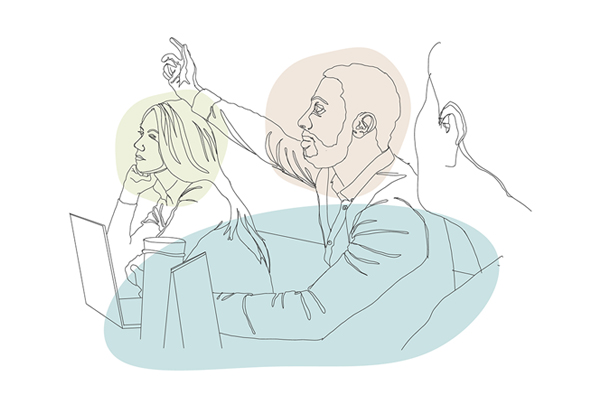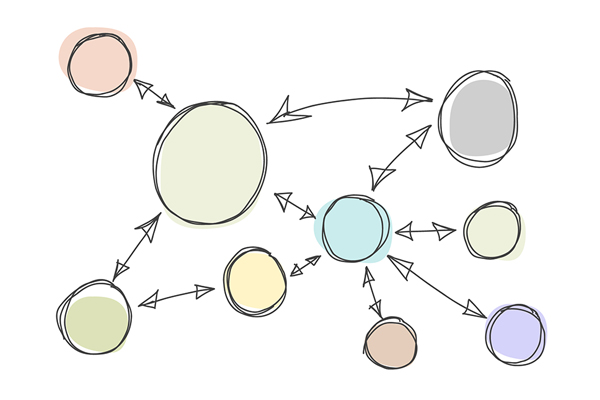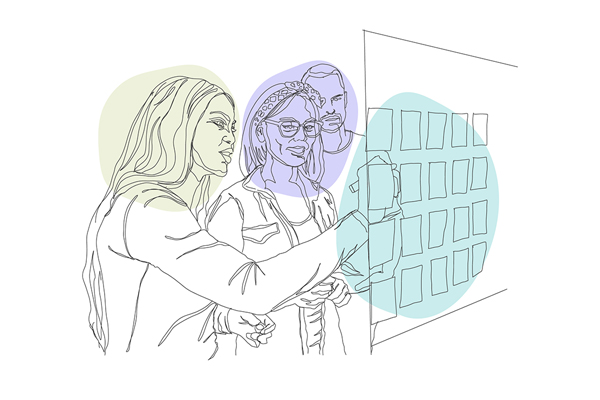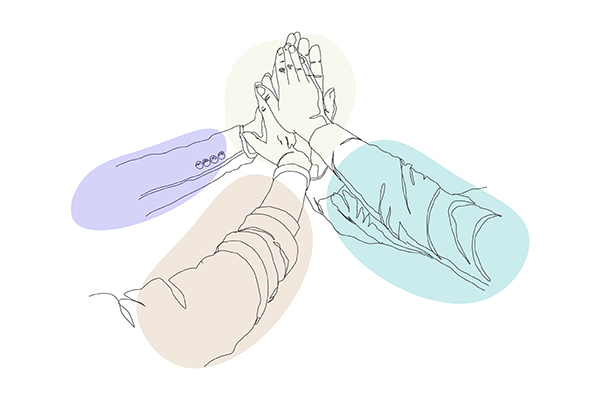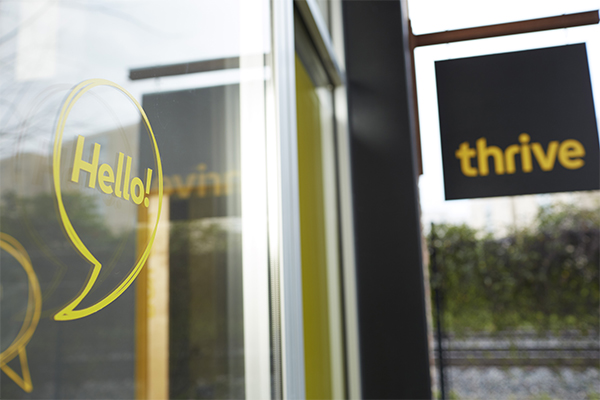The Ten (Not So Common) Traits of Highly Insightful Teams.
In the competitive landscape of today’s business world, it’s essential to have a team that can deliver game-changing disruptive insights if you want to bring innovative products and services to market and arrive ahead. Highly insightful teams are rare, but when they exist, they can literally transform a company’s trajectory. Achieving this level of success requires a unique blend of personality traits, habits, and leadership styles.
This blog explores the top ten (not so common) traits of highly insightful teams and how, when assembled, they can help your organization thrive now and long into the future.
“The best vision is insight.” — Malcolm Forbes.
Some of these answers start with understanding why insights matter. In our blog What Is Insight? The 5 Principles of Effective Insight Definition, we touch briefly on the fact that an ever-increasing explosion of data puts more knowledge at our fingertips than ever before, but that doesn’t necessarily tell you what to do with that information. Companies often find themselves drowning in data with the illusion of knowledge, yet they cannot turn that information into action.
What does it mean to be an insightful team?
An insightful team is a group of practitioners skilled at finding the underlying motivations that drive people’s actions and re-examining existing conventions to challenge the status quo. They observe human behavior in a way that results in a target population being understood from a fresh perspective, uncovering new human truths that reveal the inner nature of things. An insightful team then turns this knowledge into an actionable plan to achieve an organization’s strategic business objectives.
Building an insightful team or evolving an existing one to be more insightful requires much hard work. It’s typically a multi-year journey with lots of mistakes and learning along the way; you don’t just have an offsite with an inspirational speaker and a new process, and you are there. First and foremost, it’s about getting the mindset and chemistry of the team right. Not everyone will be insightful or have the potential to be, in the same way that not everyone has a natural capacity to be creative or strategic. Being in possession of a certain set of traits we have observed over many years of practice can determine whether an insights and innovation team will likely succeed or not.
Continue reading to find out THRIVE’s ten (not so common) traits of highly insightful teams:
1. Openness
There is a reason why “openness” is one of THRIVE’s three core values; it’s an essential ingredient for the creative thinking required for innovation and new product and service development. People high in this trait are more likely to pursue knowledge for its own sake and think about the deeper meaning of things. Teams and individuals who embody openness are highly receptive to trying new things, fresh ideas, novel experiences, and exploring cultures without polluting the context with biases. Intellectually humble, people who are open hold their beliefs less firmly than others and are excellent at joining the dots and connecting seemingly unrelated ideas or concepts to break new ground. Insightful teams cannot be myopic; they need to see the big picture, experience the interconnectedness of life and think about the world in new ways if they are to deliver disruptive insights and ideas.
2. Curiosity
“I have no special talent; I am only passionately curious.”— Albert Einstein.
Curiosity is one of the most undervalued traits in the business world today and is crucial for building insightful teams capable of developing new, groundbreaking products and services. It drives learning and innovation and is critical for understanding the increasingly complex and uncertain world surrounding us. If you are going to anticipate change and quickly adapt to disruptions as an organization, you will need an inquisitive and passionately curious team.
Hiring people with curiosity is vital for discovering new disruptive insights as they want to learn more about the world and how it works. The curious are excellent at identifying knowledge gaps and are driven to seek more information, persisting until the problem is solved. Without an inquisitive team of researchers, designers and innovators, you will stagnate and remain in your comfort zone. Curiosity prompts us not to state an existing fact but to pose new questions and ask, “What if?”
3. Humility
When it comes to innovation and growth, we usually focus on skills such as creativity, critical thinking, and strategic planning. However, humility is one often overlooked trait that can make a massive difference if you want to understand the human experience deeply.
Humility is not about being weak, submissive, or lacking self-confidence. Instead, intellectual humility is a mindset that acknowledges our limitations, seeks to learn from others, and cultivates open-mindedness and curiosity. To be an insightful team, you must admit that you do not have all the answers and are willing to value the opinions and life perspectives of others. Learning and humility are directly related; the more we know as an entire team, the more we realize what we don’t know. Groups with humility as a driving tenet of their team culture question their worldview and remain open to new experiences, unleashing their organization’s full potential to achieve breakthrough insights and outcomes.
4. Naivety
Naivety should not be looked upon as a negative trait. Instead, businesses should embrace it as a powerful tool for finding breakthrough insights. A naïve mindset is a critical tool for a team’s success when conducting generative research and approaching it without preconceptions or biases. Insightful teams are adept at reducing personal or preconceived notions of the subject matter while aiming to investigate the customer/user’s experiences without overwhelming their beliefs. It’s crucial to view the subject matter from a beginner’s point of view and utilize a childlike curiosity to gain insights into complex issues.
Having a naïve mindset involves asking many open-ended questions while also recognizing an understanding of the gap between what they know and what they don’t. This requires a degree of humility (Trait #3), lacking the overconfidence of an expert’s mind to arrive at better and more usable insights. High-performing teams should avoid bringing in their personal biases and instead remain in a naïve state of mind to identify those valuable unidentified problems.
5. Self-awareness
Self-awareness is essential for insightful teams. It enables them to approach their subject matter with a non-biased perspective. It protects against personal biases — the subconscious beliefs that influence your thoughts and actions. These biases can taint your research by causing you to see only what you want to see. When you are self-aware, you are less likely to carry your own assumptions and opinions to the research process. This blank slate creates a space for observation and allows you to examine human behavior objectively. This approach can help you uncover new insights and fresh perspectives. The power of self-awareness should never be underestimated, and embracing it can lead to groundbreaking innovations and improvements in customer experiences.
6. Empathy
Empathy is essential when it comes to finding game-changing human insights. Insightful teams work inductively, operating with an open mind with as few preconceptions as possible, allowing insights to emerge from the data. Empathy is one of the crucial skills that enables teams to connect with their customers more deeply. By empathizing with your target audience, you can uncover their pain points, identify unmet needs, and understand their desires and aspirations holistically. New disruptive insights can be drawn from strong customer emotions of tension, discomfort, and conflict. Empathy allows teams to recognize these moments of high emotion and look beyond what customers say they need—instead, providing insights into the underlying reasons and motivations behind a customer’s actions and attitudes towards a specific product or service. A team culture that values and prioritizes empathy is more likely to foster an environment where innovative ideas are generated, nurtured, and brought to fruition.
7. Diversity
Diversity in teams is crucial for discovering fresh insights, so it should be a priority for every organization. Insights and ideas aren’t created out of thin air — they’re created by people. The more diverse these teams are along the dimensions of culture, ethnicity, gender, sexuality, age, discipline, and experience level, the more likely they are to draw inspiration from seemingly unrelated places and notice issues others may overlook. These different opinions and insights can send a conversation down a path to create something genuinely unexpected!
Team diversity is crucial for discovering new insights and staying ahead of the competition. Creating a diverse team environment is the right thing to do and necessary for any business that wants to thrive in today’s global marketplace. Organizations can develop new solutions, identify new opportunities, and ultimately drive success by prioritizing diversity.
8. Sense-making
Sense-making provides the stimulus and temperament for assessment and reflection, an important trait for being insightful. A practiced sense-maker sieves essential cues for a given context, deciphering information and drawing inferences from fringe or weak signals to understand their deeper meaning and significance in the larger scheme of things and how they may prove relevant in the future.
When presented with a wide variety of unconnected, disparate data, sense-making enables us to discover commonalities and patterns. It’s all about connecting the dots and making tangential connections that may not be obvious. Then, when viewed through the contextual lens of a target audience, they can be brought together and made actionable as insights. Sense-making works exceptionally well when done visually, laying out all the aspects in front of us using tools such as a Customer Journey Map or an infographic to help us parse the information and provide the stimulus for ideation and unlocking our imagination.
9. Collaboration
Insightful teams are collaborative teams. When people from different backgrounds and skill sets collaborate to solve a problem, they bring many diverse perspectives and experiences. This richness of thought can lead to breakthrough insights and ideas that would never have been possible if everyone were thinking the same way.
Collaboration is not just about getting teams to work together on a specific project. It’s also about creating a culture of innovation and curiosity within your organization. Most teams come together as siloed members. They compete, don’t share much, and create little synergy. When teams collaborate in an environment of trust, empathy, and openness, they share their unique ways of thinking, and everyone becomes comfortable contributing ideas and insights.
10. Positivity
Positivity is an intentional mindset focused on possibilities, new solutions, and growth. When individuals and teams adopt a positive mindset, they open themselves up to new possibilities and embrace the unknown. This state encourages individuals to challenge the existing norms and the prevailing status quo, take risks, and explore uncharted territories. This is incredibly important for teams tasked with finding new, fresh, disruptive insights that have the potential to create new categories and topple existing ones.
“The best vision is insight”
Insightful teams possess a unique blend of openness, curiosity, humility, naivety, self-awareness, empathy, diversity, collaboration, sense-making, collaboration, and positivity. These traits make them exceptional at generating groundbreaking, disruptive insights and help them unlock the full potential of innovation in their organizations. By fostering these traits within your team, you can elevate your organization’s competitive edge and outdistance the competition.
Embrace these traits, nurture them, and watch as your team unlocks its true innovation potential. Keep these traits in mind, hire against them, and strive to cultivate them within your team; success will surely follow. Keep pushing the boundaries, challenging conventional thinking, and never stop exploring new ideas – that is how you unlock innovation!
You can succeed only with a truly insightful team in today’s competitive landscape; THRIVE can help.
________________________________________________________________
Collaboration begins with a conversation. Drop us a line today!
_________________________________________________________________
REFERENCES
1. Weisberg YJ, Deyoung CG, Hirsh JB. Gender differences in personality across the ten aspects of the Big Five. Front Psychol. 2011;2:178. doi:10.3389/fpsyg.2011.00178
2. McCrae RR, John OP. An Introduction to the Five-Factor Model and Its Applications. Journal of Personality. 1992;60(2):175-215. doi:10.1111/j.1467-6494.1992.tb00970.x
3. Weick, Karl & Sutcliffe, Kathleen & Obstfeld, (2005). Organizing and the Process of Sense-making. ORGANIZATION SCIENCE. 16. 409-421. 10.1287/ orsc.1050.0133.
_________________________________________________________________
ABOUT THRIVE
THRIVE is a strategic design firm innovating at the frontiers of health and well-being.
We work with ambitious leaders to create experiences that people love through Informed Design™. Our work gives leaders, teams, and organizations the courage and conviction to move confidently forward and design what’s next. You can find our innovations positively impacting lives in homes, hospitals, and businesses around the world.
We help you design growth in eight ways:
1. SHIFT PERSPECTIVE: We help you see customers with fresh eyes so you can find disruptive insights that let you tap into game-changing opportunities.
2. ACTIVATE INSIGHT: We distill insights into simple, actionable frameworks that are powerful and easy to understand so you can make smart decisions.
3. SEIZE NEW OPPORTUNITY: We find new ways for you to compete and new markets to scale, then prioritize ideas with the greatest potential.
4. SHAPE THE FUTURE: We develop actionable plans that generate growth through innovation so you can set a vision and step into your future.
5. ACCELERATE TIME TO MARKET: Our processes enable you to operate agilely, seize opportunities and get products to market quickly and effectively.
6. CREATE SERIOUS BRAND LOVE: Our human-centered, holistic approach to brands delivers big-on emotion to keep consumers coming back.
7. CONQUER COMPLEXITY: We can help you tame complexity, achieve clarity and make products and services easy to understand and a joy to use.
8. EMPOWER CHANGE: We help businesses shift their mindsets, foster new partnerships, and create momentum for innovation and growth.
Contact Us today to setup a free consultation to discuss all your specific research, design and innovation needs. Collaboration begins with a conversation!
ATLANTA | CHICAGO






